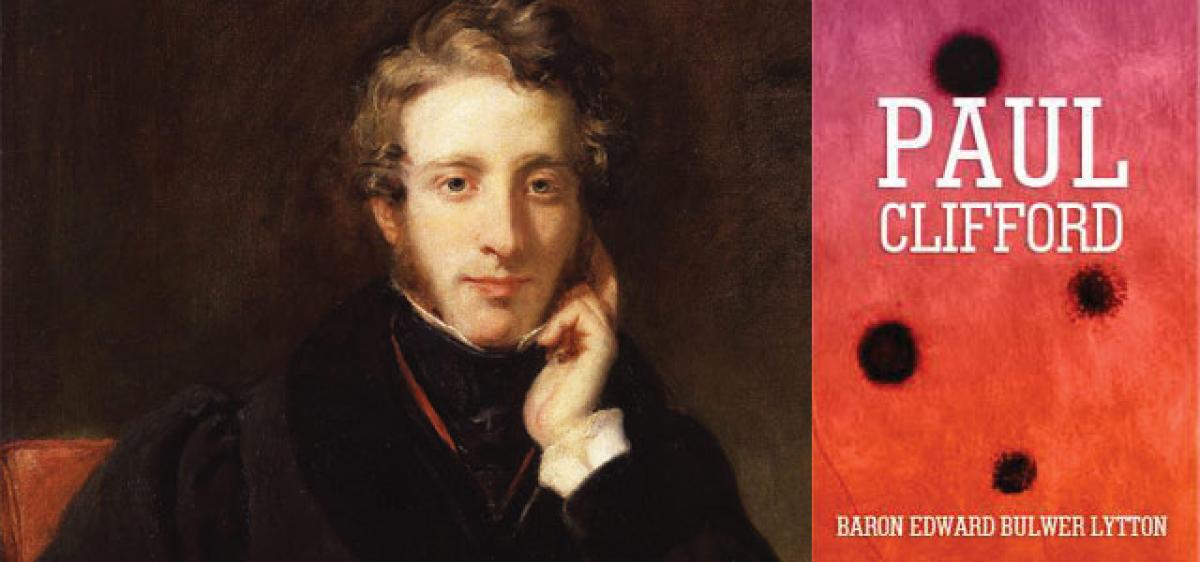Bad words

Literary legacies can be strange and unpredictable. Most popular and best-selling in his time, this 19th century British writer coined phrases like \"the pen is mightier than the sword\" and \"the almighty dollar\", influenced both theosophists like Annie Besant and Nazi mystics but is now remembered for writing the most pilloried and parodied opening line of any English literary work and inspiring a
Fiction's worst opening and its unique legacy
Literary legacies can be strange and unpredictable. Most popular and best-selling in his time, this 19th century British writer coined phrases like "the pen is mightier than the sword" and "the almighty dollar", influenced both theosophists like Annie Besant and Nazi mystics but is now remembered for writing the most pilloried and parodied opening line of any English literary work and inspiring a prize for the best bad literature.
Fans of the popular "Peanuts" comic strip may recall Snoopy, in his career as a novelist, typing out: "It was a dark and stormy night." The beagle's novel never progresses beyond this suspenseful and ominous-sounding first line but our author's work did – to its detriment.
"It was a dark and stormy night..." begins Edward George Earle Bulwer-Lytton in his 1830 novel ‘Paul Clifford’ but then goes on to tell us that "the rain fell in torrents – except at occasional intervals, when it was checked by a violent gust of wind which swept up the streets (for it is in London that our scene lies), rattling along the housetops, and fiercely agitating the scanty flame of the lamps that struggled against the darkness".
This sentence, which combines an atmospheric letdown, rapidly shifting points of view and avoidable ornate language, is a perfect example of "purple prose". This phrase, coined by first century BC Latin poet Horace (testifying to its longevity), is defined by the irrepressible TV Tropes wiki as a style "wherein the writing becomes much more florid, eschewing quotidian sentences for elaborate concatenation of phrases and clauses. On occasion, such racks of ornament can be despicable, with the scintillating adjectives bewildering the reader and obfuscating the subject..."
But it was all the rage in his time. Besides "Paul Clifford", where the eponymous hero, who lives a double life as a gentleman and a criminal in the late 18th century, is unmasked and brought to trial where some plot reverses that wouldn't look out of place in a Bollywood potboiler ensue, Bulwer-Lytton (1803-1873), went on to write over two dozen novels, over half-a-dozen plays and three volumes of poetry. All these were very popular in their day and enabled the author to make a comfortable living.
Bulwer-Lytton, whose son would become a Viceroy of India, had a rather interesting life. His mother cut off his allowance after he married a society beauty against her wishes and the marriage did not last long. An acrimonious separation after six years soon became legally permanent and his wife hit back with a satirical, near-libellous fiction work on him.
Almost two decades later, she renewed her attack while he was standing for Parliament and he had her committed to a mental asylum (she was soon released after a public outcry). Bulwer-Lytton won and served as Secretary of State for Colonies. In the 1860s he was reportedly offered the crown of Greece but declined.
But to return to the "dark and stormy night". Widely parodied in a range of works, its crowning moment of glory came in California over a century after the author's death when in 1982, Professor Scott E Rice of San Jose State University's English Department began the annual Bulwer-Lytton Fiction Contest (BLFC) where candidates had to compose "the opening sentence to the worst of all possible novels".
From the three entries in the first year, the winner was Gail Cain of San Francisco with: "The camel died quite suddenly on the second day, and Selena fretted sulkily and, buffing her already impeccable nails – not for the first time since the journey began – pondered snidely if this would dissolve into a vignette of minor inconveniences like all the other holidays spent with Basil."
As it went public the next year, the media focus led to 10,000 entries from not only the US or other English-speaking nations but from all over. The prize, which is a "pittance" (around $150 in 2014), grew to include several genre sub-categories.
The winners can manage awesomely ingenious bad prose – 1988 winner Rachel E Sheeley wrote: "Like an expensive sports car, fine-tuned and well-built, Portia was sleek, shapely, and gorgeous, her red jumpsuit moulding her body, which was as warm as the seat covers in July, her hair as dark as new tires, her eyes flashing like bright hubcaps, and her lips as dewy as the beads of fresh rain on the hood; she was a woman driven – fueled by a single accelerant."
Or fellow American WW 'Buddy' Ocheltree in 1993: ".... but the first second that the third-rate representative of the fourth estate cracked open a new fifth of old Scotch, my sixth sense said seventh heaven was as close as an eighth note from Beethoven's Ninth Symphony, so, nervous as a tenth grader drowning in eleventh-hour cramming for a physics exam, I swept her into my longing arms, and, humming 'The Twelfth of Never', I got lucky on Friday the thirteenth".
Other winners up to 2016 can be found on the competition's webpage: www.bulwer-lytton.com/index.html (where we are informed that "www" means "Wretched Writers Welcome"). Head over – it's worth it.














